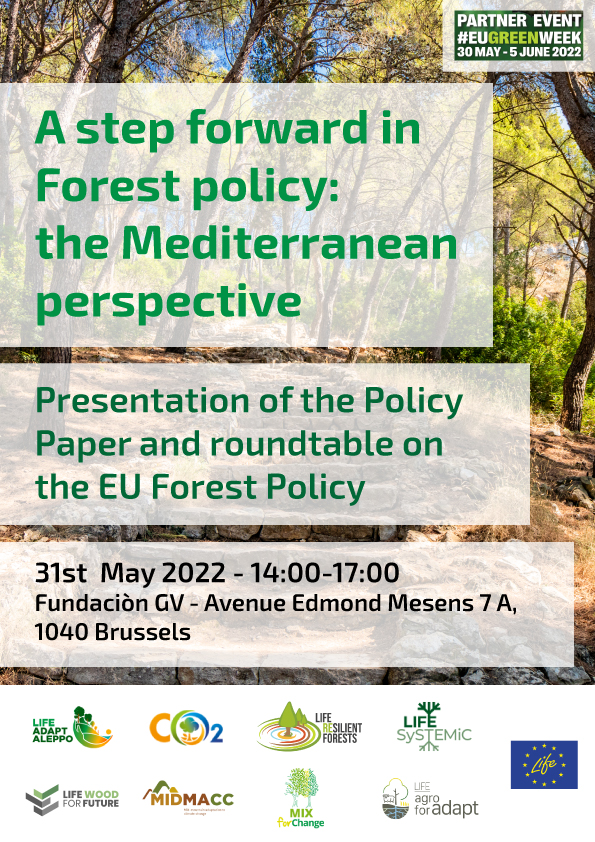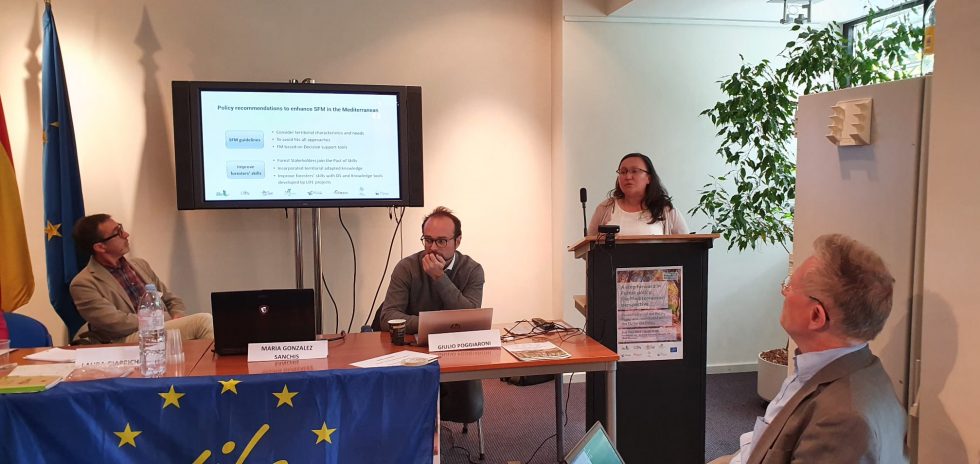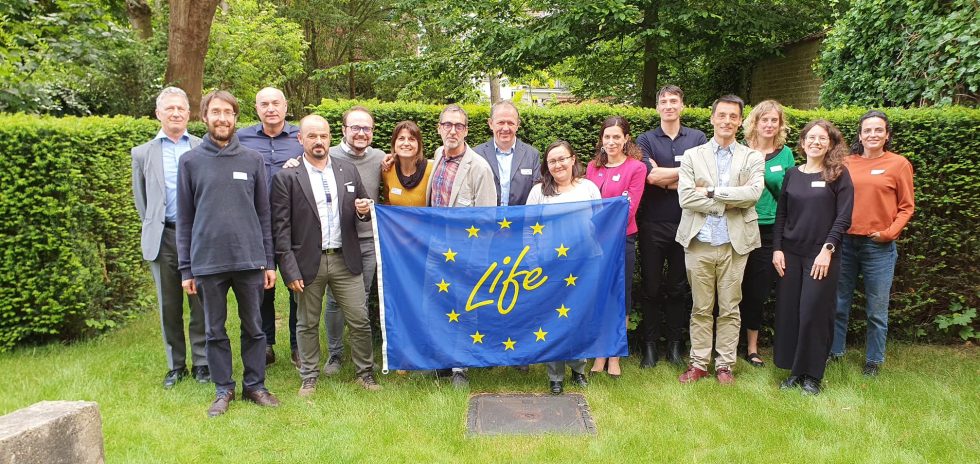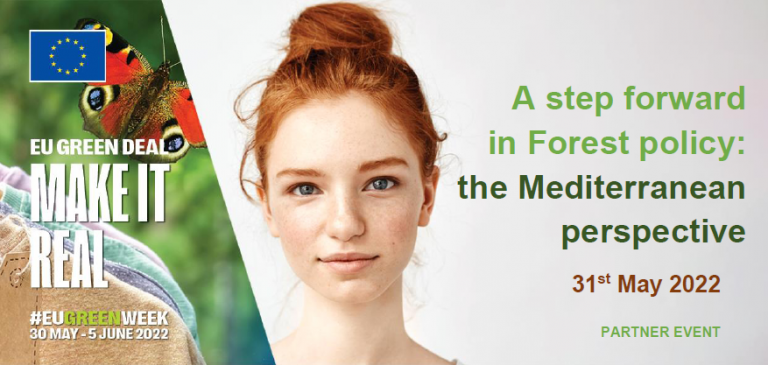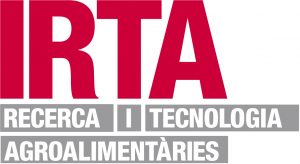In 2021, the European Forest Strategy 2030 was published, paving the way for a new set of legislative initiatives and changes in the policy framework. In this context, partners from eight ongoing LIFE projects have come together to share field experiences and provide policy recommendations to promote true Sustainable Forest Management as a practice to improve the health and resilience of Mediterranean forests, for the long-term provision of ecosystem services and economic value in rural areas. The policy recommendations have been collected in a Policy paper that was presented in Brussels on 31st May 2022, as part of a EUGreenWeek activity, with the participation of the European Union’s Directorates-General for Climate and Environment.
More than 80% of Mediterranean forests are privately owned, which makes their management unique and not easily comparable. In this context, establishing and applying an integrated forest management plan to the Mediterranean area requires taking into account this particularity, which is essential to guarantee the ecosystem services provided by forests, among others. This is the starting point for the presentation to the European Commission of a series of policy recommendations by the partners of 8 Life project research groups. In particular, we propose actions linked to the European Forestry Strategy 2030, in order to obtain the support of European public policies for the management of a type of forest that is particularly vulnerable to climate change.
The partners of the following Life projects have been actively involved: Adapt-Aleppo, Agro for adapt, Forest CO2, Life Resilient Forest, MIDMACC, Mix for change, Systemic and Wood for future. The scientific team leading these research initiatives also works on regenerative agriculture and soils, and therefore also calls for EU agricultural policy to take into account the particularities of the Mediterranean area.
The entities addressed by the proposal are representatives of the European Union’s Directorates-General for Climate and Environment, specialists linked to the different Life projects of the European Climate Infrastructure and Environment Executive Agency, professionals from the European Monte Institute (EFI), the European Confederation of Forest Owners (CEPF), as well as delegations from regional governments, among others.
